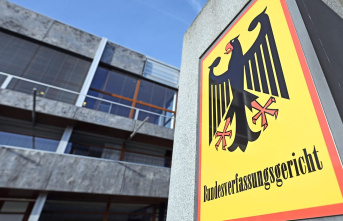Because in the last ten years, the risk of poverty declined in the East, according to figures from the Federal Statistical office on the Basis of the microcensus (from 19.5 to 17.9 percent), in the West, however, (from 13.3 to 15.4 percent).
The threshold for the risk-of-Poverty was the Federal Statistical office suggest that in the case of 1074 euros for a Single person household, 60 percent of the average household income. Who has less money, is considered to be at risk of poverty.
The nation's sharpest decline recorded between 2009 and 2019, Mecklenburg-Western Pomerania - from 23.1% to 19.4 percent. In the same period, the poverty risk increased in Bremen from 20.1 to 24.9, in the state of Hesse from 12.4 to 16.1 and in NRW from 15.2 to 18.5 percent. But what are the reasons for the development?
a location for Investment, unemployment rate, minimum wage - that's why the Median income is rising in the East"The average income of the East has caught up since 2009 by almost 3 percentage points," says work expert, Christoph Schröder from the Institute of German economy (IW) in the case of FOCUS Online. The income gap in the new German länder, therefore, includes in – albeit slowly. "The good economic situation of recent years has been made in the East than in the West," says Schröder. As a location for investment in the new länder would have gained in attractiveness, also because of the shortage of skilled workers is less severe.
it's fitting that it has decreased the unemployment rate in Eastern Germany since 2009, from 13 percent to 7.2 percent. In the West, she is currently at 5.4 percent. Federal statistical office, Particularly the poverty has increased risk in Hesse, North Rhine-Westphalia and Bremen
are Severely affected by poverty in Germany in addition, migrants – roughly 35 percent are at risk, according to the Federal statistical office. Since in East Germany (8 per cent in 2018), significantly fewer people with an immigrant background than in the West (28.6 percent in 2018), in carrying this aspect of the different poverty developments between the East and the West, says the IW-expert.
For poverty researchers Professor Christoph Butterwegge, however, is still another factor is decisive: "In the Eastern German States, the poverty risk has decreased because of the introduction of the statutory minimum wage on 1. January 2015 had a positive effect. There, wages were extremely low before, even in collective industries on the agenda,“ he explains in an interview with FOCUS Online.
an Economic structural change in West Germany as a poverty driverStrong, the share of poverty has increased vulnerable, especially in North Rhine-Westphalia, Hesse and Bremen. IW-expert Schröder sees the change in its economic structure in the regions as a poverty driver. In the Ruhr area municipalities would get the move away from coal energy to be felt increasingly, while in Bremen, the ship industry is stuck in the crisis.
the municipalities are Buffeted because of it. "Due to their high Indebtedness, you have very little room, make investments, or to reduce the property tax, in order to make themselves more attractive for investors," explains Schröder the Dilemma. In fact, one must think in these cases, a debt relief, according to the expert. The world is better than your bad news - FOCUS Online provides you every Friday with the best stories from the field perspectives. Subscribe here for free Newsletter:
In their political demands to improve the situation, the difference between the two experts, however. While she refers to "an increase in the minimum wage as well as higher transfers in the case of Hartz IV, as well as the basic security in old age and during acquisition reduction" strong, and put Schroeder on "measures to the start-up opportunities for all, fair shape". "It is important that we invest more in education and people from poorer backgrounds the access to the labour market".
Overall, reduces the poverty gap between the East and the West over the past ten years is something worrying, the strong negative Trend in some West German länder, however. With a view to the economic recession in the Wake of the corona crisis remains to be seen how the development in Germany in the coming years will continue.
In the FOCUS Online/Wochit In the
Reuters/BWI Date Of Update: 14 August 2020, 10:27










